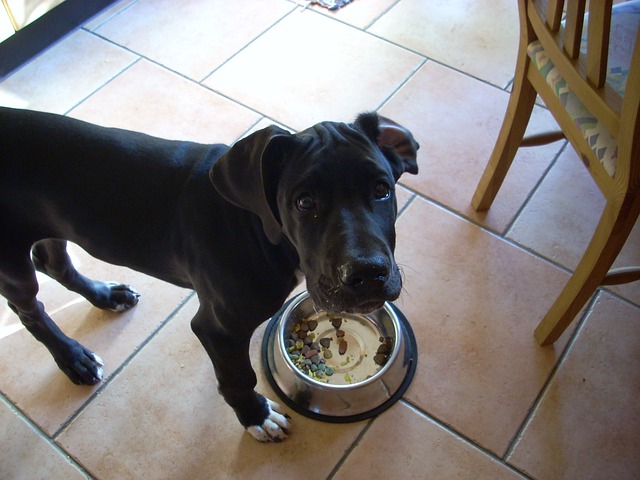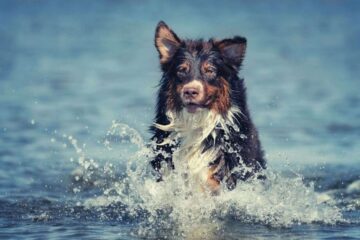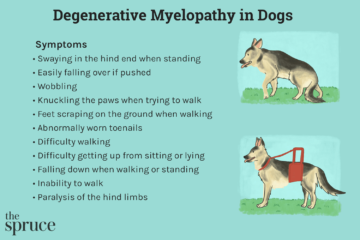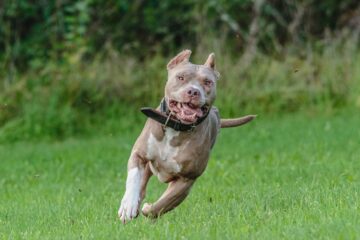A Great Dane typically eats around 2 to 6 cups of food per day. Their food intake may vary based on age, activity level, and size.
Great Danes are known for their large appetites and should be fed high-quality, nutritious food to support their growth and overall health. Proper feeding is essential to prevent obesity and other health issues in this breed. It’s important to consult with a veterinarian to determine the right amount of food for your Great Dane based on their individual needs.
By providing a balanced diet and monitoring their intake, you can ensure your Great Dane stays happy and healthy for years to come.

Credit: www.akc.org
Feeding Requirements Of A Great Dane
Great Danes have specific dietary needs due to their large size and rapid growth. Proper nutrition is essential to maintain their overall health and well-being.
- A balanced diet rich in protein and healthy fats is crucial for Great Dane’s muscle maintenance and energy levels.
- High-quality commercial dog food formulated for large breeds can provide essential nutrients for their growth.
- Fresh water should always be available to keep your Great Dane hydrated.
Several factors can affect the food consumption of a Great Dane:
- Age: Puppies require more frequent meals to support their growth, while adult Great Danes may need fewer but larger meals.
- Activity Level: Highly active Danes may require more calories to maintain their energy levels.
- Health Conditions: Some health conditions may require specific dietary restrictions or supplements.
- Environment: Climate and seasonal changes can influence appetite and food intake.
Understanding the feeding requirements and factors affecting food consumption is crucial in ensuring your Great Dane stays healthy and happy.
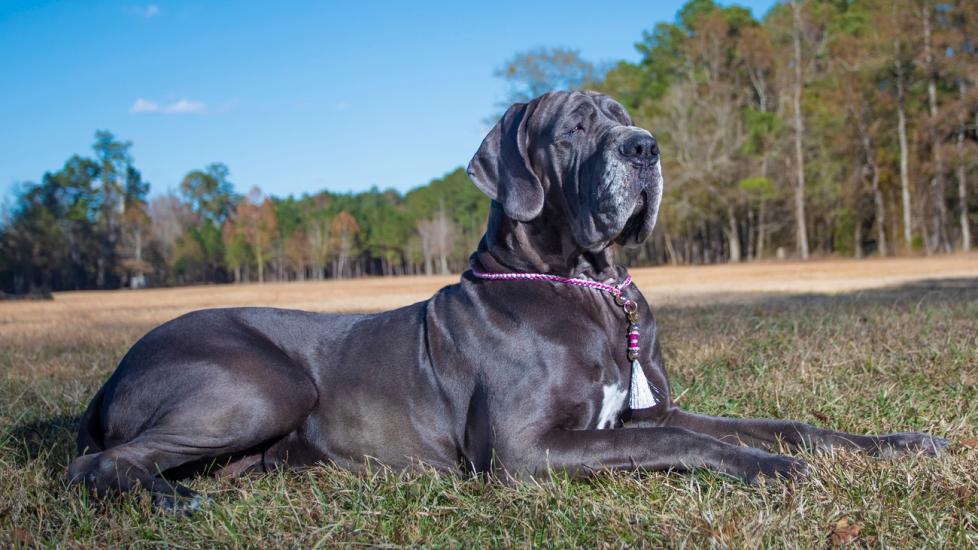
Credit: www.petmd.com
Understanding Great Dane’s Feeding Schedule
Great Danes should ideally be fed twice per day to maintain their energy level throughout the day.
Feeding them twice helps prevent overeating and aids in digestion.
- For puppies, feed 1-2 cups of high-quality puppy food per meal.
- Adult Great Danes may require 4-8 cups of food per day, split into two meals.
- Portion sizes vary based on the dog’s activity level, age, and health.
| Age | Portion Size (Cups) |
|---|---|
| Puppy | 1-2 |
| Adult | 4-8 |
It’s crucial to consult with a vet to determine the right portion size for your Great Dane’s specific needs.
Calculating The Cost Of Feeding A Great Dane
Calculating the cost of feeding a Great Dane can be a daunting task, but understanding how much food they eat is essential. Great Danes require a substantial amount of food daily, with an average intake ranging from 3 to 6 cups, depending on age, size, and activity level.
Monthly Food Expenses
Feeding a Great Dane can be a significant expense due to their large size and hearty appetite. Great Danes are one of the largest dog breeds, and their daily food intake is much higher compared to smaller breeds. On average, a Great Dane will consume about 4 to 10 cups of high-quality dog food per day, depending on their age, weight, and activity level.
Considering Great Danes require this amount of food every day, it is important to calculate the monthly food expenses to budget accordingly. Assuming an average consumption of 6 cups per day, that amounts to approximately 180 cups of food per month. This estimate may vary depending on the individual Great Dane’s specific needs.
Cost Comparisons With Other Breeds
When comparing the cost of feeding a Great Dane to other dog breeds, it’s important to consider their size and dietary requirements. Smaller breeds generally have lower food consumption, resulting in lower monthly food expenses. Let’s take a closer look at a cost comparison:
| Breed | Monthly Food Consumption (approx.) | Cost |
|---|---|---|
| Great Dane | 180 cups | $$ |
| Labrador Retriever | 60 cups | $ |
| Chihuahua | 10 cups | $ |
As seen in the comparison above, feeding a Great Dane can be significantly more expensive compared to smaller breeds. This is due to their larger food consumption requirements. It’s important to consider these factors when budgeting for a Great Dane and to ensure that you can provide the necessary financial resources to meet their dietary needs.
Feeding a Great Dane is not only about the quantity but also the quality of the food. It is recommended to invest in high-quality dog food that provides the necessary nutrients for their growth and overall health. While the cost may be higher compared to cheaper alternatives, it is essential to prioritize the well-being of your Great Dane.
Maintaining A Healthy Diet For A Great Dane
A healthy diet is crucial for maintaining the well-being of your Great Dane. These gentle giants have unique dietary requirements that need to be met in order for them to thrive. In this article, we will discuss the importance of balanced nutrition for optimal health and explore special dietary considerations that are essential for your Great Dane’s diet.
Balanced Nutrition For Optimal Health
A Great Dane’s size and growth rate require a diet that is specifically formulated to support their development and overall health. Providing a balanced diet is key to ensuring they receive all the essential nutrients they need. Here are some important factors to consider:
- High-Quality Protein: Great Danes require protein-rich diets to support their muscle development. Look for dog food that lists a high-quality source of animal protein, such as chicken or beef, as the primary ingredient.
- Healthy Fats: Including healthy fats, such as omega-3 fatty acids, in their diet can promote a shiny coat, improve skin health, and support joint health. Sources of healthy fats include fish oil, flaxseed, and canola oil.
- Complex Carbohydrates: Opt for dog food that contains complex carbohydrates like whole grains and vegetables. These provide sustained energy and are easier to digest compared to simple carbohydrates.
- Essential Vitamins and Minerals: Ensure their diet includes a variety of fruits and vegetables to provide essential vitamins and minerals. These play a vital role in maintaining the overall health and immune system of your Great Dane.
Special Dietary Considerations
Great Danes also have specific dietary considerations that should be taken into account:
- Large Breed Puppy Formula: It’s essential to feed your Great Dane puppy a large breed puppy formula until they reach adulthood. These formulas are specifically designed to support their rapid growth rate and help prevent skeletal abnormalities.
- Controlled Feeding: To prevent obesity, it’s important to control your Great Dane’s food portions and feeding schedule. Consult with your veterinarian to determine the appropriate amount of food for your dog’s age, size, and activity level.
- Slow Growth: Rapid growth can put a strain on a Great Dane’s developing skeleton. Avoid overfeeding and opt for formulas that promote slow and steady growth to reduce the risk of skeletal issues.
- Joint Support: Great Danes are prone to joint issues, such as hip dysplasia. Look for dog food that includes joint-supporting ingredients like glucosamine and chondroitin to maintain healthy joints.
A well-balanced diet that meets the specific nutritional needs of your Great Dane is crucial for their overall health and longevity. It’s always best to consult with your veterinarian to create a diet plan tailored to your dog’s individual needs and to ensure they are receiving the proper nutrition.
Addressing Great Dane’s Appetite
As one of the largest dog breeds, Great Danes have quite an appetite. Understanding how much food to feed them is crucial to their health and well-being. In this article, we will discuss two important aspects of managing a Great Dane’s appetite: dealing with excessive eating and handling picky eaters.
Managing Excessive Eating
Great Danes have a tendency to overeat if given the chance. This can lead to obesity and various health problems. To manage excessive eating, follow these tips:
- Establish a feeding schedule: Feed your Great Dane at the same time every day to regulate their eating habits. Divide their daily food intake into two or three meals.
- Control portion sizes: Use a measuring cup to ensure you are serving the right amount of food. Consult with your veterinarian to determine the appropriate portion size for your Great Dane’s age, weight, and activity level.
- Monitor treats: Limit the number of treats you give your Great Dane. Treats should only make up a small percentage of their overall daily calorie intake.
- Create a feeding routine: Find a quiet space for your Great Dane to eat without distractions. Establishing a routine can help prevent them from begging for food or stealing leftovers.
- Consider slow-feeders: Slow-feeders are bowls designed to encourage dogs to eat at a slower pace. They can help prevent a Great Dane from devouring their food too quickly.
Dealing With Picky Eaters
Some Great Danes can be picky eaters, making mealtime a challenge. Here are some strategies to encourage your picky eater to consume their meals:
- Switch up the food: Try different brands or flavors of dog food to find one that your Great Dane finds appealing. Consult with your veterinarian to ensure you are making a healthy and gradual transition.
- Warm up the food: Heating the food slightly can enhance its aroma and make it more enticing for your picky eater.
- Add toppers: Sprinkle some low-sodium broth, shredded chicken, or a small amount of wet dog food on top of their kibble to add flavor and entice your Great Dane to eat.
- Stay consistent: Avoid giving in to your picky eater’s demands for table scraps or other foods that are not part of their regular diet. Stick to a consistent feeding routine to establish healthy eating habits.
- Consult with a veterinarian: If your Great Dane’s picky eating persists or is accompanied by other concerning symptoms, consult with a veterinarian to rule out any underlying health issues.
By implementing these strategies, you can effectively manage a Great Dane’s appetite, whether they have a tendency to overeat or are picky eaters. Remember to always prioritize your Great Dane’s health and consult with a veterinarian for personalized advice.
Longevity And Health Impact Of Diet
When it comes to the longevity and health impact of a Great Dane’s diet, it’s crucial to understand the significant role that nutrition plays in enhancing their overall well-being and lifespan. A well-balanced diet tailored to a Great Dane’s specific needs can effectively contribute to their longevity, ensuring optimal health and vitality throughout their life.
Effect Of Diet On Great Dane’s Lifespan
A carefully curated diet can substantially influence the lifespan of a Great Dane. Proper nutrition, including essential vitamins, minerals, and proteins, supports their overall health, promotes robust immune function, and aids in the maintenance of healthy body weight, ultimately extending their lifespan.
Nutritional Requirements For Common Health Issues
Great Danes are prone to certain health issues such as hip dysplasia, bloat, and heart conditions. Tailoring their diet to address these concerns can help mitigate the risk and impact of these health issues. For instance, a diet rich in joint-supporting nutrients can aid in managing hip dysplasia, while providing slow-feed options can help prevent bloat, contributing to their overall well-being and reducing the likelihood of these health issues.
Handling Weight Management Challenges
The challenge of managing a Great Dane’s weight can be substantial, with their large size requiring significant amounts of food. A feeding chart can help ensure they receive the right amount needed each day, while understanding their dietary needs can assist in maintaining a healthy weight.
Preventing Obesity In Great Danes
Monitor your Great Dane’s food intake regularly to prevent obesity.
- Measure precisely the amount of food your dog consumes.
- Balance nutritional needs with portion control.
- Provide enrichment activities to keep your Dane active.
Strategies For Weight Gain And Loss
Consult with a vet for a tailored weight management plan.
- Increase exercise for weight loss.
- Adjust portion sizes accordingly for weight gain.
- Consider specialized diets for specific weight goals.
Remember, a healthy weight is crucial for your Great Dane’s well-being and longevity.
| Weight Category | Recommended Daily Food Intake |
|---|---|
| Senior | 2-3 cups |
| Adult | 4-8 cups |
| Puppy | 8-10 cups |
Always prioritize your Great Dane’s health by managing its weight effectively.

Credit: www.pinterest.com
Best Practices In Great Dane Feeding
Great Danes are known for their large stature and are considered one of the giant dog breeds. With their size comes their remarkable appetite, making it crucial to consider the best practices when it comes to feeding them.
Tips For Food Storage And Handling
- Store dog food in a cool, dry place to maintain its freshness and nutritional value.
- Avoid exposure to sunlight or extreme temperatures to prevent spoilage.
- Use airtight containers to store the food and keep it away from pests or insects.
- Regularly clean the storage containers to prevent contamination and maintain hygiene.
Consulting A Veterinarian For Dietary Guidance
It’s essential to consult a veterinarian when determining the dietary needs of your Great Dane. These professionals can provide tailored feeding recommendations based on your dog’s age, weight, and health conditions. They can also guide you on the appropriate portion sizes and ensure your Great Dane receives a balanced and nutritious diet.
Frequently Asked Questions
How Much Food Should A Great Dane Eat A Day?
A Great Dane should eat about 2-3 cups of high-quality dog food per day.
How Much Does It Cost To Feed A Great Dane A Month?
Feeding a Great Dane costs around $50 to $100 per month, depending on the quality and quantity of food.
Are Great Danes High Maintenance?
Great Danes are not high maintenance. They require minimal grooming with a weekly brush and occasional baths. They are known for drooling but generally have a low upkeep for their coat.
What Is The Life Expectancy Of A Great Dane?
The life expectancy of a Great Dane is around 8 to 10 years.
Conclusion
Understanding the dietary needs of a Great Dane is crucial for their health and well-being. By following a proper feeding chart and considering their age and activity level, you can ensure they receive the right amount of food. Additionally, consulting with a veterinarian can provide tailored insights for their specific needs.
Regular monitoring and proper nutrition will lead to a happy and healthy Great Dane.
